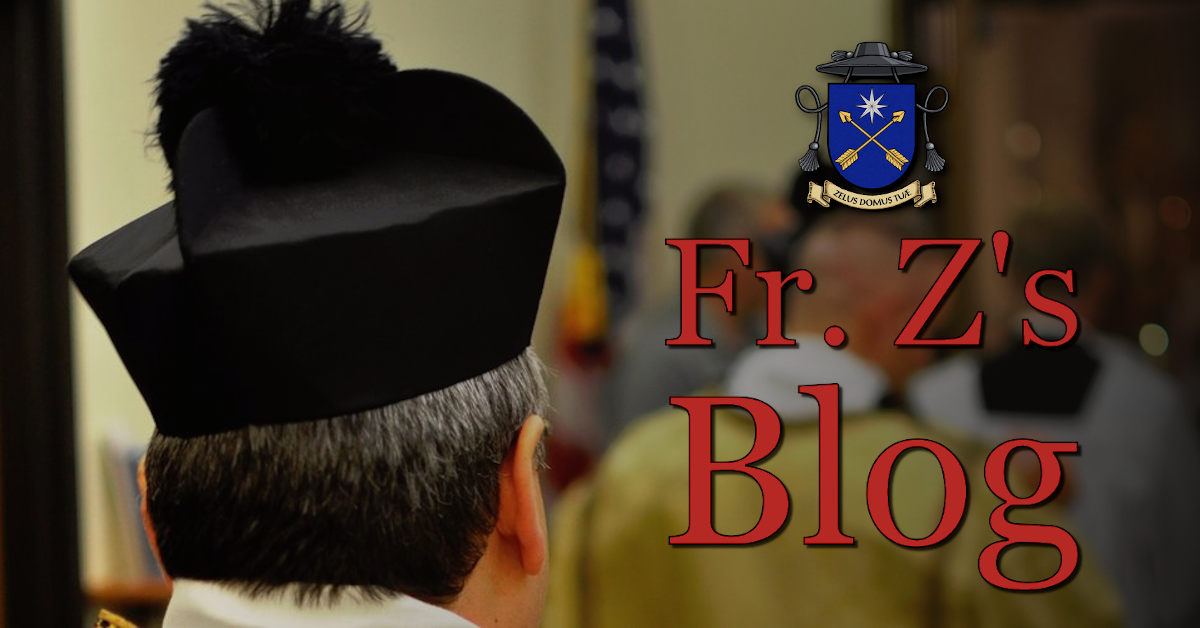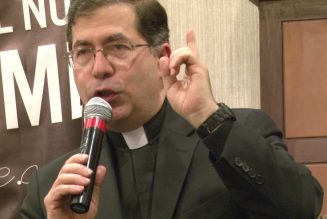
From a reader…
QUAERITUR:
You’re probably the only priest who can properly help me navigate this, given your knowledge of the fine arts, particularly classical music, as well as being solid on Catholic morality. You’re also the only priest whom I know is familiar with Carmina Burana (I saw you mention it in very old posts).
I’m slated to perform Carmina Burana along side my city’s philharmonic orchestra in its chorus. I’m feeling uneasy because of the subject matter and the piece that parodies the Ave Maria. I want to sing it because it’s a major piece of the Canon of Western Music, but I also don’t want to sin and blaspheme Our Lady or anything else sacred. Frankly, the subject matter makes me want to vomit.
Navigating the arts, particularly secular choral music that is questionable, has proven to be difficult and anxiety provoking for me because I don’t know when it becomes sinful. Can you give me some pastoral guidance on this subject matter?
Thanks for the front-loaded kind words. I am sure there are many priests out there who could help you out with this. As a matter of fact, I bounced this off a priest friend just to be sure I was not drifting.
Firstly, it has been a long time since I looked at the texts of the Carmina Burana used by Orff. And it is Cármina, not Carmína.
However, the work by Orff is part of a set of three pieces often performed together. The other two are poems from the ancient Neoteric author Catullus, famous for some raunchy stuff. I assume that you may be asking about those.
You mention the canon of western music. There are works in the accepted canon which respect the rules of beauty and thus reflect reason and truth. They certainly can be played and heard by conscientious Catholics. On the other hand, there are works which do not respect these rules and our involvement with them becomes murkier.
Moreover, St. Thomas Aquinas tells us that all art and science should lead to adoration.
Hence, the guiding questions for all art and science, is whether or not it pleases God and whether or not it can be offered to Him. We may not act on an uncertain conscience.
If the texts you are being asked to sing parody what is sacred, then it can hardly be a worthy offering to God.
That said, I recall an amusing video which provides the most famous of the Orff Carmina Burana (which is used in snippets all over the place – very drammmmatic!). The video has “misheard” lyrics. I’m sure everyone here knows the idea: the lyrics of some song are a little garbled and we mishear them, get them wrong, and pretty soon they are the words we remember. You might remember the Monkey’s singing “Then I saw her face, now I’m gonna leave her.” A related phenomenon is mis-learned prayers by phonetics, as in “O God, I am hardly sorry for having offended Thee”. Here’s the video with the misheard lyrics of O Fortuna from Orff’s riff on some medieval poet or other. Orff… not my fav, but this made me laugh a couple of times. I’d pay to go to a concert with these lyrics.
[embedded content]
| O Fortunavelut lunastatu variabilis | O Fortune like the Moon you are changeable |
Gopher tuna! bring more tuna! Statue of a big dog with fleas |
| semper crescisaut decrescisvita detestabilis | always growing always shrinking detestable life |
Some men like cheese hot temperate cheese green chalk can taste like hippies |
| nunc obduratet tunc curatludo mentis aciem,egestatem,potestatemdissolvit ut glaciem.
[…] |
now oppresses and then heals as the fancy games it poverty or power she melts them like ice[…] |
You caught two rocks? Pet two cool rocks! You don’t get cheese or chicken.Play chess all day. Hold his sock tip. She sold me good hot chicken.[…] |







